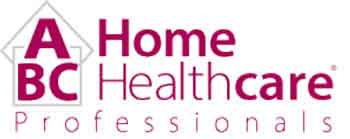Wearing masks, watching our distance and washing our hands are not the only things we need to remember to do to keep ourselves safe during this pandemic. As scammers often do, they find a way to take advantage of all of us during times when we are most vulnerable- especially our seniors!
Below are some of the recent and most popular scams targeting seniors:
Identity Theft
Sadly, both the number of COVID cases and consumer complaints of identity theft are on the rise.
Now that the new stimulus bill has been signed into effect, it is anticipated that we will see a rise in identity theft claims as fraudsters are desperate to steal these funds from deserving individuals for their own financial gain. As of December 16th, over 270,000 consumer complaints to the Federal Trade Commission (FTC) report a total loss of $211.3 million- with two thirds of those complaints being identity theft claims.
If you receive a stimulus check from the government, you should deposit the check or cash it right away- DO NOT hold onto it. The longer you wait on depositing or cashing the check, the more time it gives scammers to identify the check information and hijack the funds. Also, it is important to note that the government would NEVER ask that you pay a fee in order to receive your stimulus check. Therefore, if someone is reaching out to you about your stimulus payment and requiring that you pay a fee upfront to receive your check, hang up or terminate the conversation immediately.
In addition, knowing that many seniors are entitled to a stimulus check, scammers will often call and impersonate a grandchild saying they need money urgently for an emergency of some kind (the grandparent scam). Tugging at the heartstrings of unsuspecting seniors is how many con artists have made their money during these challenging times so it is important to not fall for these tricks- no matter how real the request may seem.
Price Gouging and False Advertising
2020…the year of scarce supply of toilet paper, paper towels, hand sanitizer and cleaning supplies.
With the lack of inventory on key items, scammers have been known to take to the internet and advertise products that are in high demand for astronomical prices in the hopes that someone will be desperate enough to pay the inflated prices- this is price gouging in action. Alternatively, there have been times where fraudsters will advertise items for sale that are in high demand for a cheap price to get someone to buy multiple quantities and then never send the merchandise.
Furthermore, the FTC and FDA have sent dozens of warnings to companies selling unapproved products claiming that said products can cure or prevent COVID-19. Included in this are fake COVID-19 antibody tests that con artists are advertising with a motive to collect personal information they can use to steal someone’s identity.
Fake Charities
This has been a challenging year for so many- especially those who have lost their jobs. With the staggering unemployment numbers, many families need financial assistance and, while there are certainly some legitimate charitable foundations that exist for this very purpose, there are many illegitimate charities surfacing. Such fraudulent organizations typically exist online but can also solicit their victims via mail and over the phone.
Be vigilant when it comes to donating your hard-earned money and do your research on any charity before ever making a financial donation! You can use Charity Navigator to help with identifying the legitimacy of any charitable organization.
Phishing Scams
The internet is a breeding ground for phishing campaigns.
Per the Treasury Department’s Financial Crimes Enforcement Network (FinCEN), since January, tens of thousands of new website domains have been registered with terms related to COVID-19 and the response to it, such as “quarantine,” “vaccine” and CDC”- hundreds of which have been shut down by the Justice Department. Once these malicious domains are contacted, an unsuspecting user could start getting phishing emails from con artists attempting to obtain sensitive, personal information or install malware on the user’s computer or mobile device via a corrupt link. Scammers are even pretending to be contact tracers warning you that you’ve been exposed to someone with the virus via text, email or a phone call.
Simply put, DO NOT click on any links or open emails from any unfamiliar sources.
_____________________________________________________________________________________
Taken directly from the Beware of Robocalls, Texts and Emails Promising COVID-19 Cures or Stimulus Payments article written by John Waggoner and Andy Markowitz for AARP, the following are some tips that you can use to avoid falling victim to COVID scams:
- Avoid online offers for coronavirus cures or faster access to tests and vaccines. These claims are NOT legitimate!
- Be wary of emails, calls and social media posts advertising “free” or government ordered COVID-19 tests. Check the FDA website for a list of approved tests and testing companies.
- DON’T click on links or download files from unexpected emails, even if the email address looks like a company or person you recognize. The same goes for text messages and unfamiliar websites and/or emails.
- DO NOT share personal information such as Social Security, Medicare and credit card numbers in response to an unsolicited call, text or email
- BE SKEPTICAL of fundraising calls or emails for COVID-19 victims or virus research, especially if they pressure you to act fast and request payment by prepaid debit cards or gift cards!
- IGNORE phone calls or emails from strangers urging you to invest in a hot new stock from a company working on coronavirus-related vaccines, products or services.
It is important to remind ourselves and our seniors that NO ONE will ever call from the CDC or IRS to request sensitive, personal information. Therefore, personal information should NEVER be given to anyone unless the recipient of said information is a verified and trusted source.

